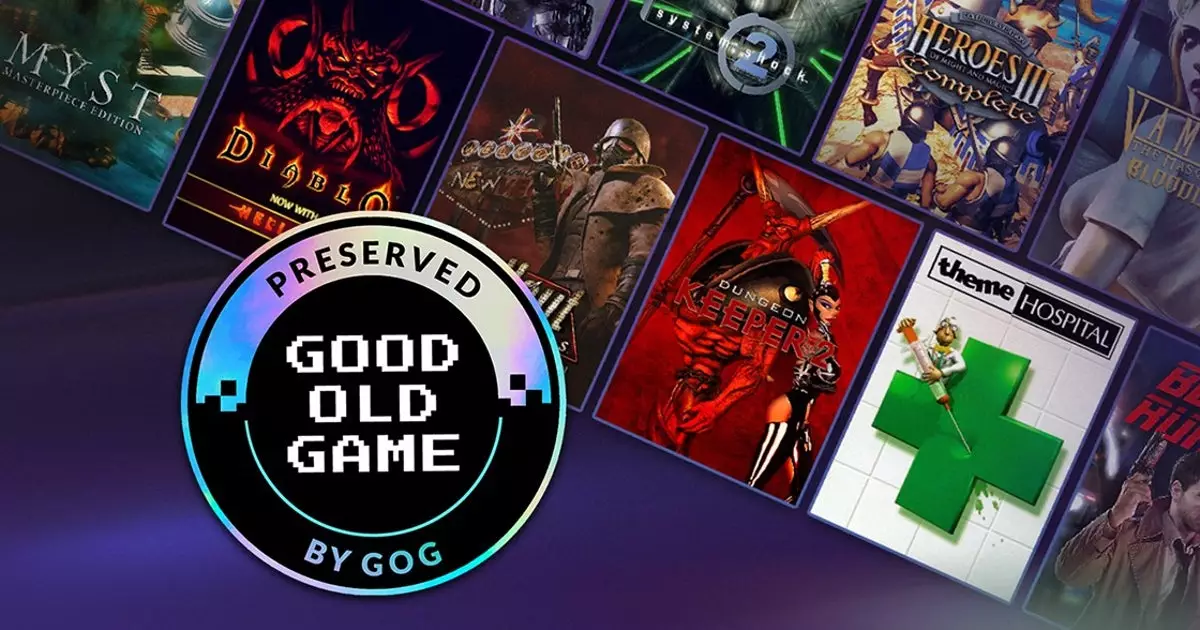For years, GOG (Good Old Games) has been synonymous with the nostalgic embrace of classic video titles, carving out a niche for enthusiasts of older games. Initially, GOG established itself as a pioneer in the realm of game preservation, providing access to beloved titles that may otherwise have been lost to time. However, in recent years, GOG has veered from its original path, expanding its catalog to include a wide array of modern blockbuster games. This transition may evoke mixed feelings, as it seems GOG has shifted from its role as a guardian of gaming history to a competing storefront reminiscent of a DRM-free Steam.
Nevertheless, GOG’s latest announcement signals a commendable return to their roots. The company is unveiling the GOG Preservation Program, an initiative designed to revitalize older games and ensure they remain playable on contemporary hardware. This move blends elements of gaming preservation with the necessary technical updates required for modern systems, ultimately providing players with a more accessible and enjoyable entertainment experience.
At the core of the GOG Preservation Program lies a commitment to rejuvenating classic titles for a new generation of gamers. This endeavor is not merely about reintroducing old games for sale; it involves an extensive process of modernizing these experiences while honoring their original essence. Games that successfully navigate this restoration process will feature a distinctive “Good Old Game” badge, signaling their updated status to consumers browsing the storefront.
The update process conducted by GOG’s skilled software team comprises several stages. First, they meticulously address any existing bugs and integrate essential modern features—such as advanced video codecs and compatibility with the latest iterations of Windows—allowing these games to run smoothly on today’s computers. Players can rest assured that these “badged” titles represent the most complete versions available, incorporating downloadable content, expansions, manuals, and even alternative language options.
To kick off this ambitious initiative, GOG has set forth an impressive array of over 100 games that will be relaunching with the coveted Good Old Game designation. The diverse selection spans genres and eras, including iconic titles like the Resident Evil series, Diablo (alongside its Hellfire expansion), System Shock 2, and Vampire: The Masquerade – Bloodlines. Perhaps of particular interest is the inclusion of both Fallout and Fallout: New Vegas, which have remained fan favorites despite their age. This release aims to bridge the gap between nostalgia and modern user expectations, breathing new life into these cherished classics.
While many players express excitement about the revitalization of such games, there is a prevailing desire for updates on titles that aren’t quite as aged yet are still fraught with compatibility issues. For example, fans eagerly await improvements for New Vegas, which still requires extensive modding to function optimally on contemporary systems. This situation serves as a reminder that even relatively recent classics must navigate the inherent challenges of technological evolution.
Challenges and Considerations
However noble GOG’s intentions may be, the success of the Preservation Program is not guaranteed. The undertaking requires collaboration with original developers and publishers, which may prove to be an obstacle. The sensitive nature of intellectual property means that not all studios will readily grant permission to amend legacy titles. Moreover, GOG must balance this preservation effort with market realities—drawing in profits while striving to maintain their identity as a preservation-centric platform.
While skepticism may linger regarding GOG’s choices, the revitalization of gaming history undeniably holds appeal. As players have increasingly voiced their frustrations over publishers rendering classic titles unplayable due to server shutdowns and other issues, GOG’s proactive stance to counter these trends offers hope for a brighter future in game preservation. Whether GOG can navigate the complexities of re-establishing its role as a guardian of gaming heritage remains to be seen, but their renewed commitment to offline compatibility and preservation-friendly remasters marks an encouraging chapter in the saga of video game history.


Leave a Reply